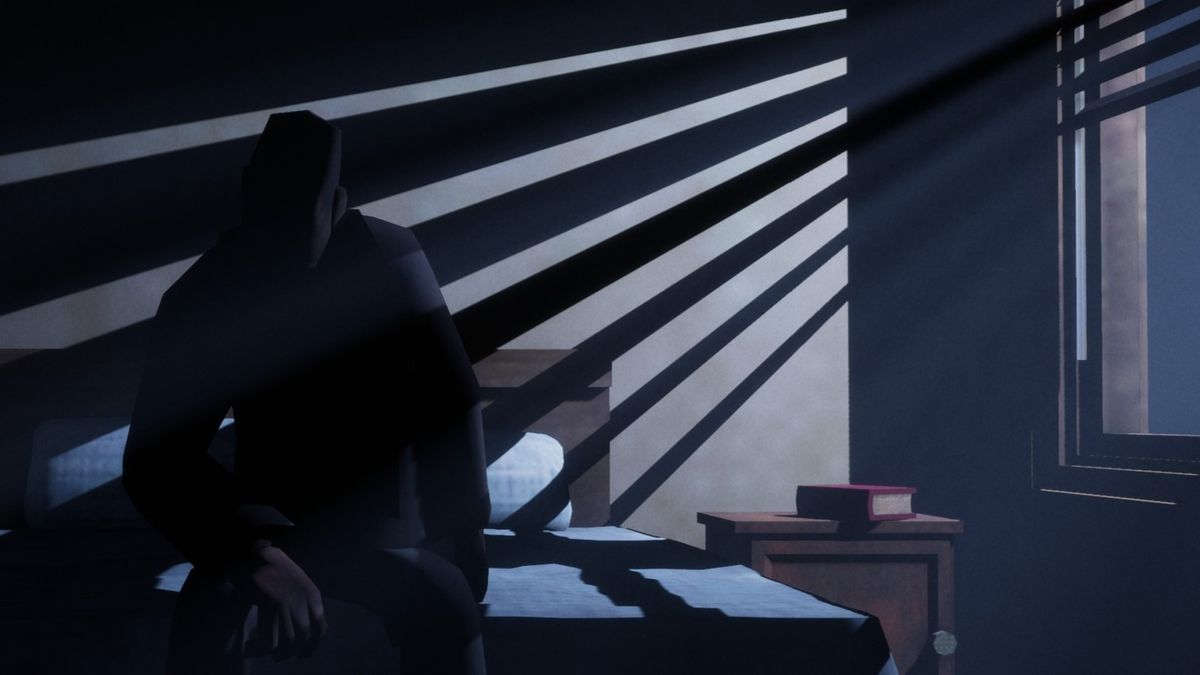El Paso, Elsewhere: A Videogame-Ass Videogame That Defies Expectations
El Paso, Elsewhere is a videogame that feels like a blast from the past. With its 50 levels of intense action, seven powerful weapons, and an army of the undead to blast back to hell, it harkens back to the days of OG PlayStation games. The lurid colored lighting adds to its retro charm. But don’t let its nostalgic aesthetics fool you, because El Paso, Elsewhere is also one of the freshest and most cutting-edge indie releases of the year.
Drawing inspiration from Max Payne for its core combat loop, El Paso, Elsewhere manages to be so much more than just a run-and-gun game. It is a modern gothic love story, with incredibly well-written dialogue and voice acting that carries a script which would be considered overwrought in any other context. It delves into the world of bad breakups and cycles of abuse, accompanied by a high-energy soundtrack featuring over 80 bangers, including an entire horror-themed hip-hop album.
This mashup of genres and themes shouldn’t work, but it does. El Paso, Elsewhere achieves its thematic alchemy through 7-8 hours of running and gunning, pulling elements from classic games like Quake and injecting them with the philosophically resonant moments of Disco Elysium. It sounds like a joke, but it’s delivered with absolute sincerity, creating an experience that is both unique and emotionally gripping.
The game is deeply old-school, reminiscent of early ’90s or even ’80s games. The levels float in an abstract void, starting and ending at an elevator. Your mission is to grab weapons and ammo, blast monsters, and rescue hostages. Once you’ve rescued all the hostages, more enemies spawn and the sky turns red, signaling your progress. Rinse and repeat this process 50 times.
But the story goes beyond the central loop. It revolves around James Savage, a paranormal-researcher-turned-monster-slayer, who is on a mission to defeat Draculae, Lord of the Vampires. The catch is that Draculae is James’ ex, and their post-breakup angst adds a layer of emotional complexity to the game. It’s a concept that could have easily fallen flat, but Strange Scaffold, the small indie outfit behind the game, manages to pull it off with absolute sincerity and occasional humor.
Xalavier Nelson Jr., the writer, director, voice actor, and lead singer in the vocal tracks, pours his soul into El Paso, Elsewhere. While credit goes to the entire team at Strange Scaffold, it’s hard to shake the feeling that this is Xalavier’s game. The breakup in El Paso feels all too real, with regrets, warning signs, sweet memories, and traumatic experiences all intertwined. It’s a fantastical setting, but the emotions it evokes are raw and relatable.
The gameplay itself is fun and fast-paced. The abstract and intentionally fractured level design adds to the game’s thematic shifts and provides some exciting sequences. However, it’s the deep personal drama that truly shines. The dialogue and the accompanying soundtrack elevate the experience, leaving players itching for the next line and immersing them into the emotional journey of James and Draculae.
El Paso, Elsewhere is a fragmented anomaly of a game. It manages to blend old-school aesthetics with modern storytelling and gameplay. It’s a game that defies expectations, delivering a unique and emotionally resonant experience. It may have the features of a classic PlayStation game scrawled across its back cover, but it is so much more than that. It is a game that tugs at your heartstrings and leaves a lasting impression.


